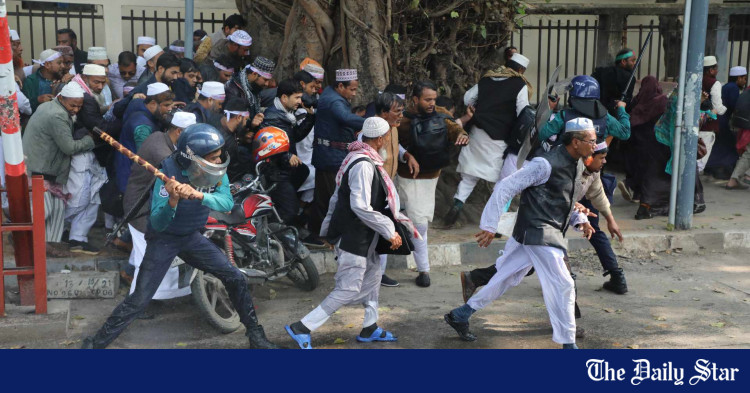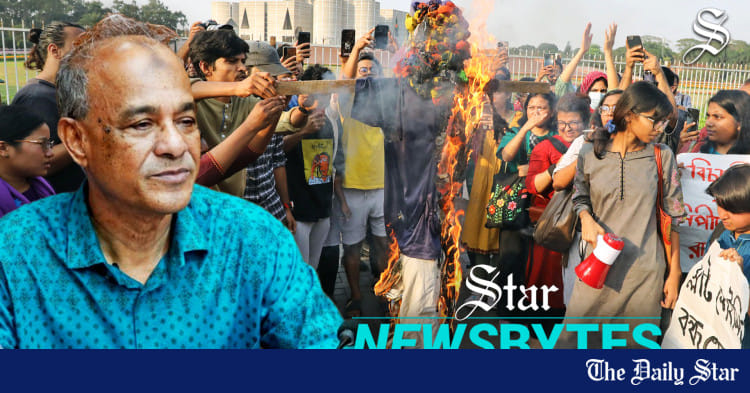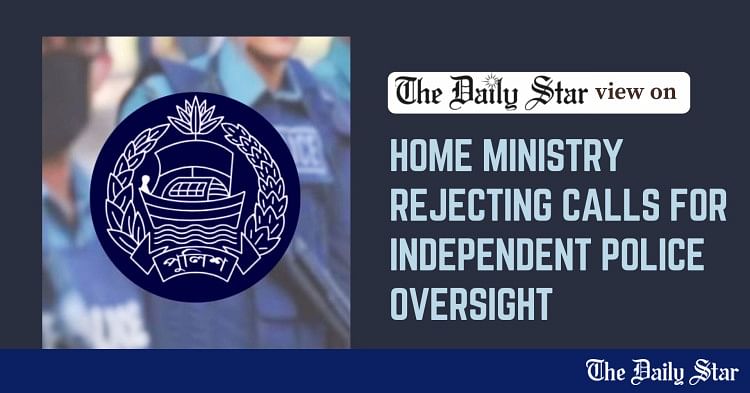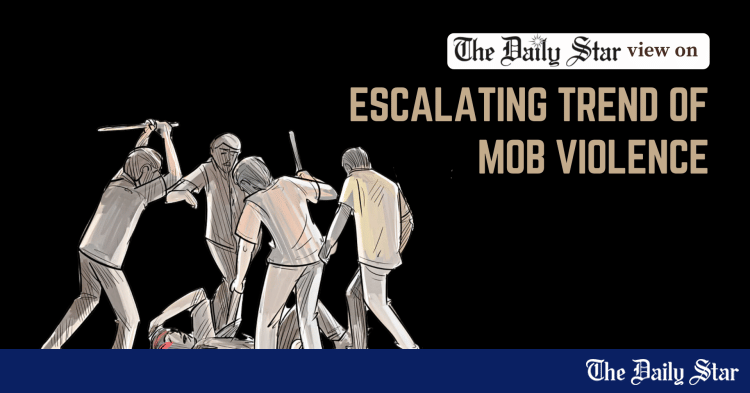- Copy to clipboard
- Thread starter
- #76
Saif
Senior Member
- Messages
- 14,207
- Reaction score
- 7,467
- Origin

- Residence

- Axis Group


New uniform won’t fix a broken force
Police must focus on substantive reforms instead

VISUAL: STAR
The decision to change the uniforms of Bangladesh Police, along with Rapid Action Battalion (Rab) and Ansar, reflects an attempt to distance these forces from the stigma attached to their current attire. After years of being used as political instruments by the Awami League government—most notably during the bloody July uprising—these uniforms have become symbols of fear, oppression, and corruption. A new dress represents a break from that past and also a fresh start. However, it does nothing to address the real issue at hand: the need for institutional reforms. It is no surprise then that the decision has left citizens unimpressed.
While uniform changes have historical precedents in this country, the timing of the move—amid a persistent economic crisis and ongoing discussions about police reform—raises questions. First, outfitting approximately 2.14 lakh police, 5,000 Rab, and around 51,000 Ansar and 17,000 Battalion Ansar personnel will come at a significant financial cost. These funds can be better spent on modernising their training, improving their investigative capacity, and equipping them to better serve citizens. Second, giving Rab a new uniform while its very existence is under review seems like a pre-emptive move. Third, can a simple change of colours erase the deep-seated public distrust associated with their uniforms or operations?
What our law enforcement agencies need is a shift in culture, not just in clothing. While announcing the decision, Home Adviser Jahangir Alam Chowdhury himself acknowledged that "the change in uniforms symbolises the need for a shift in law enforcers' mindset and behaviour." One of the first demands raised by police personnel after the August 5 changeover was to abandon their uniform and logo. However, restoring public trust will require much more than a makeover; it will require concrete proof of transformation through everyday action. Just recently, we saw how police used water cannons, sound grenades, and batons to disperse a protest against attacks on Indigenous rights activists. Such heavy-handed tactics echo the pre-uprising era when excessive force was routinely used against demonstrators.
Evidently, a mindset shift will not come through a uniform change. What the police need is a fundamental transformation in their operations, accountability mechanisms, and interactions with the public. The Police Reform Commission has already proposed a range of measures to the government. While these proposals await decisions based on stakeholder feedback, law enforcement agencies can, at the very least, adhere to established rules and regulations without succumbing to undue pressure. That is where their focus should be.
Police must focus on substantive reforms instead
VISUAL: STAR
The decision to change the uniforms of Bangladesh Police, along with Rapid Action Battalion (Rab) and Ansar, reflects an attempt to distance these forces from the stigma attached to their current attire. After years of being used as political instruments by the Awami League government—most notably during the bloody July uprising—these uniforms have become symbols of fear, oppression, and corruption. A new dress represents a break from that past and also a fresh start. However, it does nothing to address the real issue at hand: the need for institutional reforms. It is no surprise then that the decision has left citizens unimpressed.
While uniform changes have historical precedents in this country, the timing of the move—amid a persistent economic crisis and ongoing discussions about police reform—raises questions. First, outfitting approximately 2.14 lakh police, 5,000 Rab, and around 51,000 Ansar and 17,000 Battalion Ansar personnel will come at a significant financial cost. These funds can be better spent on modernising their training, improving their investigative capacity, and equipping them to better serve citizens. Second, giving Rab a new uniform while its very existence is under review seems like a pre-emptive move. Third, can a simple change of colours erase the deep-seated public distrust associated with their uniforms or operations?
What our law enforcement agencies need is a shift in culture, not just in clothing. While announcing the decision, Home Adviser Jahangir Alam Chowdhury himself acknowledged that "the change in uniforms symbolises the need for a shift in law enforcers' mindset and behaviour." One of the first demands raised by police personnel after the August 5 changeover was to abandon their uniform and logo. However, restoring public trust will require much more than a makeover; it will require concrete proof of transformation through everyday action. Just recently, we saw how police used water cannons, sound grenades, and batons to disperse a protest against attacks on Indigenous rights activists. Such heavy-handed tactics echo the pre-uprising era when excessive force was routinely used against demonstrators.
Evidently, a mindset shift will not come through a uniform change. What the police need is a fundamental transformation in their operations, accountability mechanisms, and interactions with the public. The Police Reform Commission has already proposed a range of measures to the government. While these proposals await decisions based on stakeholder feedback, law enforcement agencies can, at the very least, adhere to established rules and regulations without succumbing to undue pressure. That is where their focus should be.















